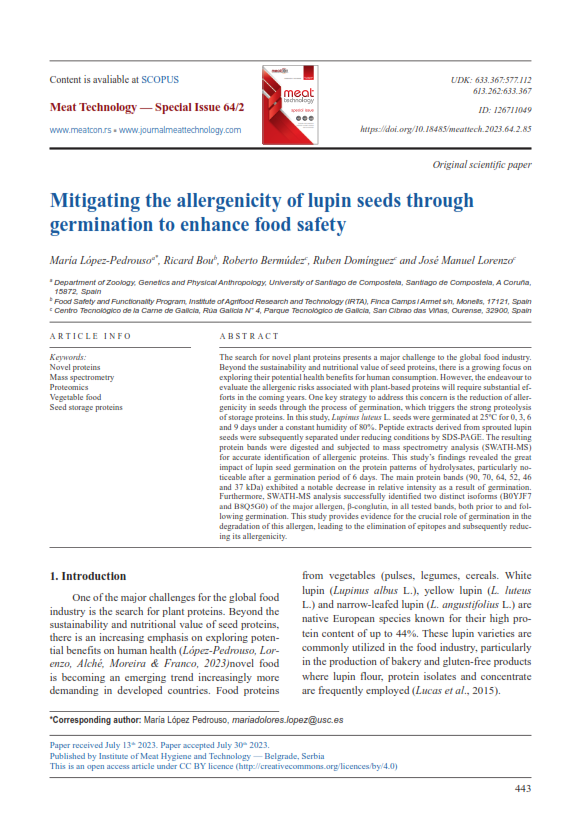Mitigating the allergenicity of lupin seeds through germination to enhance food safety
Abstract
The search for novel plant proteins presents a major challenge to the global food industry. Beyond the sustainability and nutritional value of seed proteins, there is a growing focus on exploring their potential health benefits for human consumption. However, the endeavour to evaluate the allergenic risks associated with plant-based proteins will require substantial efforts in the coming years. One key strategy to address this concern is the reduction of allergenicity in seeds through the process of germination, which triggers the strong proteolysis of storage proteins. In this study, Lupinus luteus L. seeds were germinated at 25 ºC for 0, 3, 6 and 9 days under a constant humidity of 80%. Peptide extracts derived from sprouted lupin seeds were subsequently separated under reducing conditions by SDS-PAGE. The resulting protein bands were digested and subjected to mass spectrometry analysis (SWATH-MS) for accurate identification of allergenic proteins. This study’s findings revealed the great impact of lupin seed germination on the protein patterns of hydrolysates, particularly noticeable after a germination period of 6 days. The main protein bands (90, 70, 64, 52, 46 and 37 kDa) exhibited a notable decrease in relative intensity as a result of germination. Furthermore, SWATH-MS analysis successfully identified two distinct isoforms (B0YJF7 and B8Q5G0) of the major allergen, β-conglutin, in all tested bands, both prior to and following germination. This study provides evidence for the crucial role of germination in the degradation of this allergen, leading to the elimination of epitopes and subsequently reducing its allergenicity.





